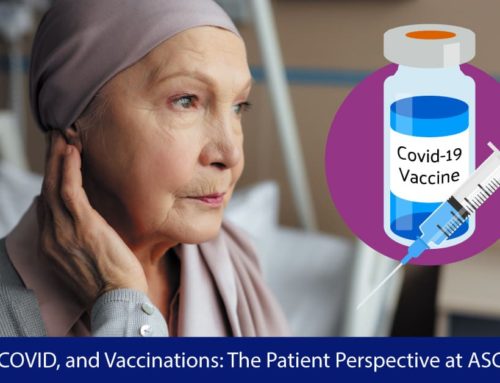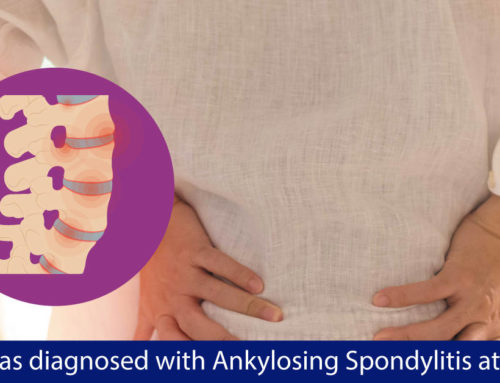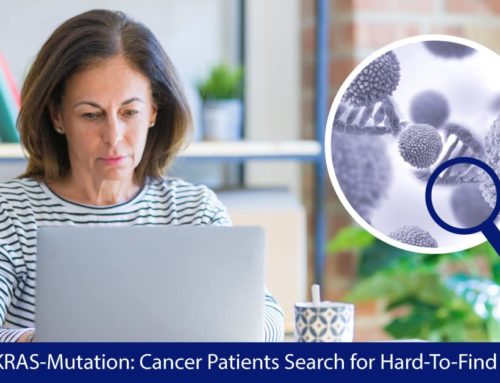Video Vignettes: Through Their Own Eyes: Systemic Scleroderma
Approximately 300,000 people in the US live with scleroderma; about 100,000 of those people live with a form called systemic scleroderma.1
Scleroderma is a connective tissue disorder involving the fibrous protein called collagen that is found in structures like cartilage, ligaments and tendons, throughout the body. People with scleroderma make too much collagen and it builds up in tissues. Often one of the first symptoms of scleroderma is hardening of the skin.
The cause of scleroderma is unknown and there is no cure. It can occur as a localized condition or it can be systemic. Localized scleroderma is usually mild, affecting only a few places on the skin or in the muscles. Unlike localized scleroderma, people with systemic scleroderma have organ involvement. In addition, systemic scleroderma is classified as diffuse and limited. This classification describes the amount of organ involvement. For those with diffuse systemic scleroderma, their lungs, kidneys, gastrointestinal system and heart are affected much earlier and much more severely than people with limited systemic scleroderma. Pulmonary fibrosis is a secondary condition, caused by scleroderma. In both limited and diffuse disease, blood vessels that support organs harden and function much less effectively.
With new medications that have been developed, survival rates for systemic scleroderma have improved. Now, according to the Cleveland Clinic, the average 10-year survival rate is between 70 and 80 percent, with the caveat that diffuse systemic scleroderma has a poorer prognosis. 2
Inspire has two communities where people affected by scleroderma can go for support. Inspire’s Scleroderma Foundation Support Group and Discussion Community has over 26,000 members in the US. The American Lung Association’s Living with Pulmonary Fibrosis Support Community on Inspire also supports those affected by scleroderma, which is associated with pulmonary fibrosis. Here is a video by an Inspire member with systemic scleroderma sharing her story.
There are treatments available to control some of the symptoms of the disease. But every patient is different. That’s why the online support has been so helpful to our members. For example, one member asked for advice on treatment as well as managing the impact of scleroderma on their family:
“Hi, I’ve had scleroderma for about _ years now but I’ve just been diagnosed today with a conduction disturbance in my heart/irregular heartbeat. Over a year and a half ago I was diagnosed with interstitial lung disease. The documented mortality rates in these cases where both lungs and heart are involved are not good and since I have a [young] daughter I am so terribly worried. I would love to hear from anyone who also has both of these and has managed to beat the odds on this and continued to life a live beyond what is expected. I am not normally a negative person but when you read you might be lucky to have 5 years and you have a [youngster], that is not good!
Any stories appreciated and advice on what treatment you received.
Many thanks”
Members of the community responded with their own stories of hope and advice:
“My journey with this disease began in my second pregnancy-which has been 30 years ago. I was told, in 1994, that I would live a maximum of 7 years. I had two children to raise and decided I had to fight everyday…There is so much good information on this site that you can take advantage of. A big part of any illness is trusting that your doctors know what they are doing and attitude…”
“I have lung disease no proof of heart yet although I did have an echo today so that might change. I was diagnosed 8 years ago with a 5 year life span too and have lived a healthy and full life past that….My daughters were 9 and 6 when I was first diagnosed. I went on a gluten free vegan diet which I think made a big difference in getting this far with no medication.”
“First, if worst case scenario came up, they do lung/heart transplant, so all is not lost. I’m 52 and was diagnosed with scleroderma in 2009…Meds are keeping things stable and even though I have a few hiccups, the doctors have gone from giving up to saying “see you in 6 months”.
“There are new meds being approved that actually can help with the progression.”
“Don’t overstress yourself. I used to freak out every time I got a new diagnosis. Then I learned that with that diagnosis comes treatment to stop or slow it down. So I just deal with each thing as it comes.”
Reassurances from people living with similar fears, hopes and dreams keeps people affected by scleroderma coming to this community. If you are interested in doing research that will improve the lives of these patients, please contact us.
Inspire offers a trusted community to patients and caregivers. Our goal with this blog, this website and our content is to provide the life science industry access to the true, authentic patient voice. In so doing, we support faithful operationalization of patient-centricity. Take a look at our case studies, eBooks and news outlet coverage.





